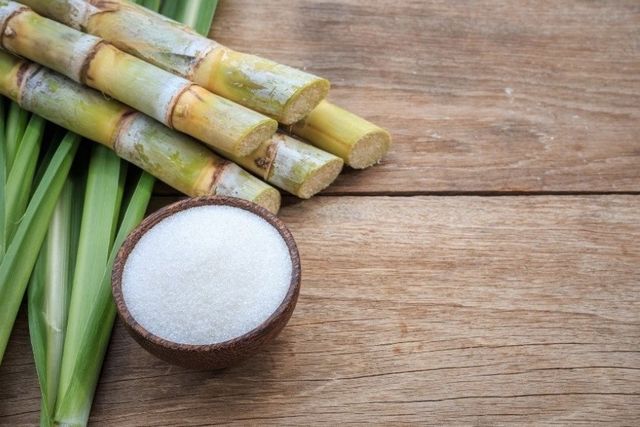Exploring the Global Impact of Sugar and Cane on Economy and Culture
Exploring the Global Impact of Sugar and Cane on Economy and Culture
Blog Article
Why Walking Cane Sugar Handling Chemicals Are Vital for Modern Sugar Refining
The duty of cane sugar processing chemicals in modern sugar refining can not be overstated, as they are essential to enhancing both the effectiveness of removal and the overall high quality of the end product. Representatives such as phosphoric acid and certain flocculants are used to eliminate impurities, resulting in sugar that not just meets customer assumptions yet also follows sector standards. The implications of these chemicals prolong beyond high quality, touching upon market characteristics and environmental considerations. sugar and cane. This increases crucial concerns about the sustainability of such techniques and their effect on the future of sugar manufacturing.
Function of Processing Chemicals
The efficacy of walking cane sugar processing pivots considerably on the strategic application of handling chemicals. These chemicals play a pivotal role in improving the efficiency and high quality of sugar extraction and refining. From the first phases of juice extraction to the final purification actions, handling chemicals assist in numerous crucial operations.
In the extraction stage, chemicals such as phosphoric acid and calcium hydroxide are employed to optimize the information process, helping to eliminate impurities and put on hold solids from the walking cane juice. This not only improves the yield yet likewise makes certain the clearness of the final item. Furthermore, agents like flocculants help in the fast settling of contaminations, consequently improving the overall procedure.
Turned on carbon and ion exchange resins serve to get rid of color and odor, ensuring that the refined sugar satisfies customer high quality criteria. Hence, the precise choice and application of these chemicals are crucial for achieving optimal results in walking cane sugar handling.
Key Sorts Of Chemicals
Cane sugar handling counts on a variety of crucial chemicals that facilitate each stage of production. These chemicals play crucial duties in clearing up, whitening, and cleansing the sugar drawn out from walking cane.
One main category of chemicals includes flocculants, such as polyacrylamide, which aid in the clarification process by promoting the aggregation and settling of impurities. Additionally, calcium hydroxide is commonly utilized to neutralize acidity and help in the removal of non-sugar components.
Bleaching representatives, such as activated carbon and sulfur dioxide, are used to decolorize the syrup, resulting in a clearer end product. These chemicals aid remove color substances that might influence the sugar's look and bankability.
Moreover, phosphoric acid offers as a pH regulator during the processing phases, making certain optimum problems for the chemical tasks associated with sugar extraction and filtration.
Other important representatives include edta (ethylenediaminetetraacetic acid), which chelates metal ions that might militarize unwanted responses, and salt hydroxide, which assists in pH control throughout the refining procedure. Collectively, these chemicals enhance efficiency and guarantee a high-grade walking stick sugar item.
Benefits for Sugar Quality
Commonly neglected, making use of specific handling chemicals dramatically improves the overall high quality of cane sugar. These chemicals play an essential duty in refining processes, making certain that the end product meets rigorous market criteria for purity and preference.

Furthermore, refining chemicals help in accomplishing a regular granulation and appearance, which are essential for customer approval. By regulating the condensation procedure, these chemicals ensure that the sugar crystals create uniformly, causing a much more appealing item that liquifies well in numerous applications.
Moreover, making use of these chemicals can boost the shelf life of cane sugar by lessening moisture absorption and microbial growth. In general, the strategic application of handling chemicals is crucial for supplying high-grade walking cane sugar that satisfies customer expectations and sector needs.
Environmental Influence Factors To Consider

Furthermore, the energy-intensive nature of sugar refining, intensified by chemical use, often results in increased carbon emissions. This contributes to climate modification and raises issues pertaining to the sustainability of present refining practices. Additionally, the sourcing of these chemicals might entail techniques that threaten biodiversity, such as monoculture farming, which minimizes the strength of Click Here farming ecological communities.

To reduce these impacts, sugar refiners are progressively exploring lasting choices and adopting best techniques that decrease chemical use. Carrying out extensive environmental monitoring systems can assist make sure that the refining process straightens with ecological requirements and promotes biodiversity. Inevitably, a well balanced method that focuses on both sugar top quality and environmental stewardship is important for the long-term feasibility of the sugar market.
Future Trends in Refining
As the sugar industry faces the environmental obstacles connected with conventional refining approaches, cutting-edge methods are arising to improve both efficiency and sustainability. One substantial fad is the fostering of eco-friendly chemistry concepts, which prioritize using non-toxic, eco-friendly processing chemicals. This shift not just reduces ecological influence however also addresses consumer need for cleaner production techniques.
An additional appealing growth is the implementation you can try these out of sophisticated purification innovations, such as membrane layer separation and adsorption procedures. These strategies improve the clearness and top quality of the sugar while minimizing the volume of wastewater created throughout refining. Furthermore, the assimilation of electronic modern technologies, including IoT and AI, is transforming functional performance by enabling real-time surveillance and predictive maintenance, therefore decreasing resource waste.
In addition, the use of spin-offs from sugar refining, such as bagasse and go to website molasses, is obtaining traction. These materials can be transformed right into biofuels or value-added products, contributing to a circular economic climate within the industry. Collectively, these patterns indicate a change in the direction of even more lasting practices that not only improve operational effectiveness however additionally align with global sustainability goals, making sure the future stability of sugar refining.
Conclusion
Walking cane sugar processing chemicals are vital in contemporary sugar refining, dramatically boosting the performance and top quality of sugar extraction. The tactical use these chemicals not only enhances the purity and taste of the final product but also ensures regular formation and appearance. As the sector progressively prioritizes sustainability, the adoption of environmentally-friendly processing representatives is likely to shape future trends in refining, ultimately leading to better products and expanded rack life for consumers.

Ultimately, a balanced strategy that prioritizes both sugar quality and ecological stewardship is vital for the long-lasting stability of the sugar industry.
Cane sugar processing chemicals are important in modern sugar refining, considerably improving the performance and quality of sugar extraction.
Report this page